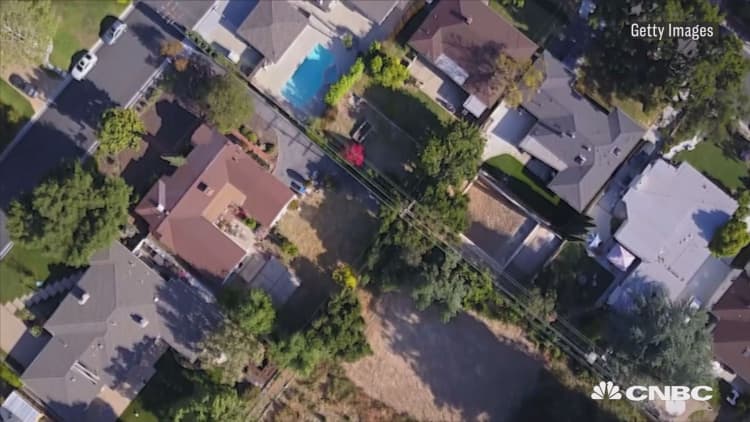The Senate passed a bill on Wednesday that aims to ease banking regulations, potentially making it easier for consumers to get a mortgage from a community bank or credit union.
With some bipartisan support, lawmakers' approval of S. 2155 was expected. The bill rolls back various banking regulations put in place via the Dodd-Frank Act of 2010 following the mortgage crisis that roiled the U.S. economy a decade ago.
The Senate bill now heads to the House, where it could face less support as written. Last year, House lawmakers passed a measure that went much further in its rewrite of Dodd-Frank. Basically, the two chambers would need to agree on a version of the bill before it could be sent to President Trump and signed into law.
In simple terms, one of the Senate bill's provisions would let smaller institutions — those with up to $10 billion in assets — offer mortgages that are not subject to some of the strictest federal underwriting requirements, as long as they meet certain other conditions.
"Where it likely will make a bigger difference is in rural areas, where big lenders don't necessarily operate," said Richard Andreano, a partner with law firm Ballard Spahr in Washington and head of its mortgage banking group. "It can be harder to get a mortgage in those places."
When Congress enacted Dodd-Frank, the idea was to better protect consumers from risky mortgages, among other things. Loans that were little understood or that ended up being unaffordable contributed to millions of homeowners losing their homes to foreclosure.
One of the things implemented by Dodd-Frank was the creation of a "qualified mortgage." Basically, if lenders meet a variety of strict guidelines — such as ensuring a borrower's loan is no more than 43 percent of their income — they get legal protection if a consumer later makes a claim that they were sold an inappropriate mortgage.
The Senate bill would let those smaller banks and credit unions still qualify for those legal protections without meeting all of the requirements that typically go with underwriting qualified mortgages.
However, the bill would still require them to assess the borrower's financial resources and debt as part of the underwriting process.
The loan also could not be interest-only or one whose balance could grow over time (so-called negative amortization). Those types of loans proliferated leading up to the mortgage crisis and contributed to homeowners' inability to keep up with their payments.

The lender also would be required to keep the mortgage in its own portfolio instead of selling it to investors. That would mean the risk remains with the bank.
Nevertheless, consumer advocates worry that reduced regulation could allow lenders to put borrowers in inappropriate mortgages while protecting the lender from legal recourse.
"This opens up a window for the return of some of the reckless financial practices that caused the crisis," said Yana Miles, senior legislative counsel for the Center for Responsible Lending.
Part of the problem with the mortgage crisis, however, was that some lenders sold mortgages with little or no effort to ensure the borrower could actually afford the loan. And once that loan was resold on the secondary market to investors, the originator no longer retained the risk.
To banking industry insiders, the bill's requirement for the bank to hold onto the loan will help prevent the type of abuse that consumer advocates fear.
If they hold on to … the credit risk, they probably underwrote the loan very carefully.Joe PiggSenior vice president of mortgage finance, the American Bankers Association
"The bank will have done its due diligence. They are the one holding the loan and it will directly impact their bottom line," said Joe Pigg, senior vice president of mortgage finance for the American Bankers Association. "If they hold on to … the credit risk, they probably underwrote the loan very carefully."
More from Personal Finance:
If you're in this popular 401(k) investment, double-check your risk
Forget a data breach, consumers give away personal information on social media
Here's another reason to think twice before using your debit card


